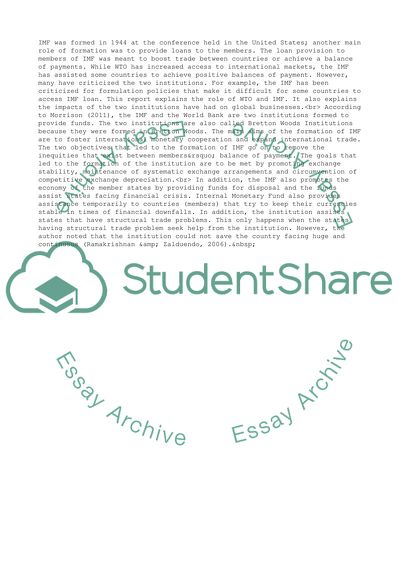Cite this document
(“Role of the WTO and the IMF in global business Case Study”, n.d.)
Role of the WTO and the IMF in global business Case Study. Retrieved from https://studentshare.org/business/1683688-role-of-the-wto-and-the-imf-in-global-business
Role of the WTO and the IMF in global business Case Study. Retrieved from https://studentshare.org/business/1683688-role-of-the-wto-and-the-imf-in-global-business
(Role of the WTO and the IMF in Global Business Case Study)
Role of the WTO and the IMF in Global Business Case Study. https://studentshare.org/business/1683688-role-of-the-wto-and-the-imf-in-global-business.
Role of the WTO and the IMF in Global Business Case Study. https://studentshare.org/business/1683688-role-of-the-wto-and-the-imf-in-global-business.
“Role of the WTO and the IMF in Global Business Case Study”, n.d. https://studentshare.org/business/1683688-role-of-the-wto-and-the-imf-in-global-business.


